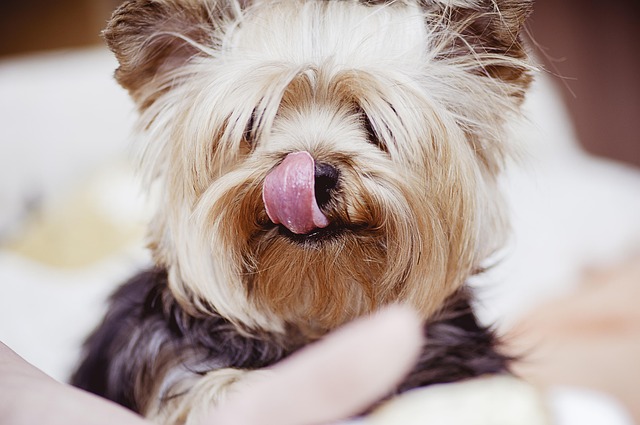
What is glaucoma in a dog?
You might notice your dog squinting more at mealtime or avoiding bright sunlight—these small changes could be early signs of a serious eye condition.
When our lovely puppies experience diarrhea, every owner becomes extremely worried. The health of puppies constantly tugs at our hearts, and understanding the causes of their diarrhea is a crucial step in safeguarding their well - being.
Dietary issues are one of the common causes of diarrhea in puppies. Firstly, a sudden change in dog food can make a puppy's gastrointestinal tract difficult to adapt. Just as humans may experience gastrointestinal discomfort when suddenly changing their eating habits. For example, when switching from a low - protein dog food to a high - protein one, the puppy's gastrointestinal tract needs time to adjust the secretion of digestive enzymes. If the transition is not done gradually and the dog food is completely replaced at once, the puppy is very likely to have diarrhea. Secondly, feeding puppies inappropriate foods, such as chocolate, onions, grapes, which are toxic to dogs, or overfeeding them, leading to an overburdened gastrointestinal tract, can also trigger diarrhea. Imagine a puppy eating too much delicious food without restraint, and the gastrointestinal tract will naturally "protest."
Parasite infections are also an important cause of diarrhea in puppies. When puppies are outdoors, they can easily come into contact with soil and water sources contaminated by parasite eggs. For instance, after parasites like roundworms, tapeworms, and coccidia parasitize in puppies, they will disrupt the normal function of the intestinal tract. When a puppy is infected with roundworms, the roundworms wriggle in the intestinal tract, irritating the intestinal wall and affecting the digestion and absorption of the intestine, thus resulting in diarrhea. Regular internal deworming of puppies is an effective measure to prevent parasite infections. It's like building a line of defense for the puppy's body to resist the invasion of parasites.

Viral or bacterial infections should not be underestimated. Canine distemper virus, parvovirus, coronavirus, etc., can all seriously affect a puppy's intestinal tract. Take parvovirus as an example. It is extremely harmful to young puppies. After infection, puppies will experience severe vomiting and diarrhea, and the feces often have a special fishy smell. In terms of bacterial infections, Escherichia coli, Salmonella, etc., will multiply in large numbers when the puppy's body resistance drops, disrupting the balance of the intestinal flora and causing diarrhea. When puppies unfortunately contract these viruses or bacteria, their uncomfortable appearance makes our hearts ache, and owners often wish they could bear the pain for them.
Environmental changes can also cause diarrhea in puppies. For example, taking a puppy on a long - distance trip, changes in environmental temperature, humidity, and the unfamiliar environment can make the puppy feel nervous and uneasy. During the puppy's body's process of adapting to the new environment, a stress response may occur, which in turn affects the gastrointestinal function and leads to diarrhea. Or, when a new member is added to the family, whether it's a new pet or a new owner, it may cause psychological fluctuations in the puppy, which is reflected in the body as diarrhea.
In addition, the puppy's own health condition can also affect gastrointestinal function. Some congenital intestinal diseases may gradually show symptoms of diarrhea during the puppy's growth process. And when there is inflammation in other parts of the puppy's body, such as stomatitis, pneumonia, etc., the overall resistance of the body decreases, which may also indirectly cause intestinal problems and lead to diarrhea.
When you find that your puppy has diarrhea, you must not take it lightly. Carefully observe the puppy's mental state, appetite, body temperature, and other conditions. If the diarrhea does not improve continuously, or if the puppy shows symptoms such as listlessness, loss of appetite, and fever, be sure to take the puppy to see a veterinarian in a timely manner. Under the professional guidance of the veterinarian, treat the puppy to help it recover health as soon as possible. Because every puppy is a little angel in our lives. They bring us endless joy and companionship, and we have the responsibility to protect their health with love and care.

You might notice your dog squinting more at mealtime or avoiding bright sunlight—these small changes could be early signs of a serious eye condition.

Let’s set the scene: It’s a sweltering Phoenix afternoon—105°F outside—and you rushed your 2-year-old Lab mix, Cooper, on a quick walk to “get it over with.”

Let’s get real: You’re in your Miami apartment, watching your 3-year-old Corgi, Loki, struggle to climb the stairs to your second-floor unit.

Many dog owners brush off occasional scratching as just “dog behavior,” but persistent itching often signals something more—like a food allergy.

You might first notice your dog scratching more than usual—chewing at their paws until the fur looks thin, or rubbing their face against the couch nonstop.

Let’s be real: You’re standing in your Chicago apartment, watching your 3-year-old Beagle, Max, huff and puff just to climb onto the couch.